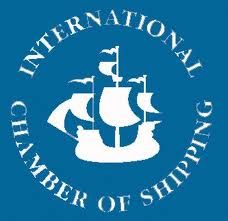
The International Chamber of Shipping (ICS), which represents all sectors and trades and over 80% of world merchant tonnage, is calling on governments to support a crucial vote, next week, at the London-based UN International Maritime Organization
(IMO), to help shipping deliver meaningful CO2 emissions reductions on a global basis.
ICS member national shipowners’ associations are lobbying their governments hard to ensure that they support the adoption of global rules on technical and operational measures, which ICS believes will deliver at least a 20% reduction in CO2 emissions by 2020, per tonne-km of trade carried by sea.
“Every vote will count.” explained ICS Secretary General, Peter Hinchliffe.
“We appreciate that some developing countries - in our view mistakenly - are concerned that a positive IMO decision on technical measures, that will apply to all ships equally, regardless of flag, might somehow prejudice their positions at the high level UN Climate Change negotiations. But any failure to agree at IMO will make discussions on the reduction of shipping’s emissions far more difficult. As well as being bad for the environment, a ‘no’ vote will threaten the ‘level playing field’ in international shipping with the risk of very serious market distortions.”
A package of technical and operational measures has been already been developed by governments, and is being put forward for adoption by the IMO Marine Environment Protection Committee (meeting from 11 -15 July) as amendments to Annex VI of the MARPOL Convention. Most importantly this package includes the Energy Efficiency Design Index (EEDI) and the use of Ship Energy Efficiency Management Plans (SEEMP).
Agreement at IMO will be vital to maintain the principle of global rules for a global industry, which cannot be guaranteed if emission reduction measures are left entirely to the high level climate change talks at UNFCCC, or if unilateral action is taken by the European Commission, which will be the likely result if agreement is not reached by governments at IMO next week.
A ‘yes’ vote on technical measures will also make the subsequent development, by IMO, of so called ‘Market Based Measures’ far more attainable. MBMs are expected to provide a means whereby shipping can make a significant financial contribution to environmental projects in developing countries – satisfying the UNFCCC principle of ‘Common But Differentiated Responsibility’, something which is important to developing countries.
ICS has recently announced that if Market Based Measures to reduce CO2 emissions are developed by governments then the international industry has a definite preference for a mechanism that is fuel levy/compensation fund-based rather than any emissions trading scheme.
Source: International Chamber of Shipping
We use cookies to improve your experience. By continuing to use our site, you accept our Cookies, Privacy Policy,Terms and Conditions. Close X